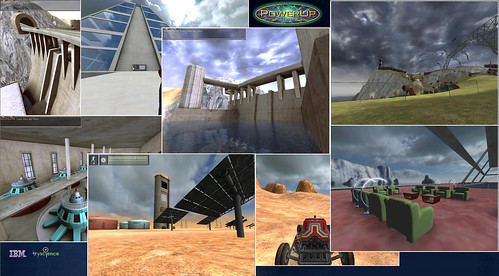PowerUp: 8-bit iPhone Camera For The Nostalgic Gamer
POWERUP #POWERUP

In February 1998, Nintendo released an accessory for the Game Boy line called Game Boy Camera. Compatible with all Game Boy systems (including the Color that would only come out eight months later), the Game Boy Camera could take black & white digital photos using the limited four-color palette of the Game Boy hardware. The Game Boy Camera, which was also compatible with the Super Game Boy SNES/Super Famicom accessory, could print photos on thermal paper through the Game Boy Printer, another piece of hardware that Nintendo introduced in 1998 and discontinued in 2003 (two years after the release of the first Game Boy Advance).
The Game Boy Camera sounds like a crazy idea that only Nintendo could come up with. But in spite of its strange nature, the Game Boy Camera’s special cartridge came with a surprising amount of pre-installed photo editing software and games that took advantage of the device’s photo-taking capabilities. Remember, this happened 10 years before Nintendo’s other portable, camera-enabled handheld product – the DSi – hit the shelves.
Alas, my parents never got me a Game Boy Camera. In hindsight, that was probably a good call, but I’ve never quite managed to shake the feeling that I should have checked out that amazingly weird creation by Nintendo’s Japanese R&D team.
I wanted to mention the Game Boy Camera to properly introduce PowerUp, a $1.99 iPhone app developed by sushiGrass.
PowerUp is the camera app for the nostalgic gamer: using the iPhone’s camera, it can take pixelated 8-bit pictures with a variety of “filters”. Unlike Instagram, filters don’t include the usual sepia and black & white: instead, you’ll get NES or SNES filters, SEGA Genesis and Master System ones, or Game Boy and Game Gear modes if you want to live the decade-old portable gaming wars all over again.
Out of the box, the $1.99 app gets you four system filters: SEGA Master System, Genesis, NES, and TurboGrafx–16. To unlock the System Pack 2, you’ll have to pay an additional $0.99 for an In-App Purchase; the IAP unlocks what I think are the best filters of the app: Game Gear, Atari 2600, SNES, and Game Boy.
PowerUp’s interface is uniquely designed to be a mix of an old videgame magazine (with a large logo at the top) and a console. To take photos, you’ll have to press a button on a controller designed to resemble the style of each system’s original hardware, but not before having adjusted contrast and saturation with a D-Pad – just like the Game Boy Camera (the dual-bar UI is exactly the same).
The level of detail and fidelity of PowerUp is impressive. The camera view, where filters are applied in real-time, comes with a pixelated version of the system button to switch between front and rear-facing cameras; when swiping down on a controller to access the main menu, the camera gets “paused”; each menu has been given an 8-bit style sound effect, though sounds can be disabled in the Settings (where there’s also an option to choose the default camera the app should launch with, something more developers should implement).
In terms of quality, the filters are loyal to their roots; the color palettes are accurate and the final product should generally look as a cheap shot taken on a Game Boy Camera-like accessory, which is accurate as well. As far as additional options go, you can convert existing Camera Roll photos using the app’s filters, or share photos to Twitter, Facebook, Email, and Instagram (if installed).
I have two minor quibbles with PowerUp: on the iPhone 5’s screen, I wish the app hid the top banner to display a taller camera view, which fells constrained in the current version. And, in order to stay true to its Game Boy Camera origins, the app should have supported AirPrint (though the Print functionality is always available in the Photos app).
If you have fond memories of old Nintendo and SEGA consoles and you like the idea of an 8-bit iPhone camera, I recommend getting PowerUp and the In-App Purchase. At $3, it’s always cheaper than getting a Game Boy Camera on eBay.